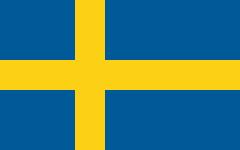
One of the hardest aspects to travel is having to negotiate your way around countries where you don’t speak the language. While knowledge of English is becoming very widespread, you’ll get a much better reaction from locals if you try to learn a bit of the local language before you go and are willing to try it out.
Of course, you don’t always have the time to attend a face-to-face course before you leave; preparing for your trip is going to be difficult enough as it is. Fortunately, the internet has come to our rescue – there’s plenty of online courses for many languages out there, it’s just a matter of finding them.
This is the first article in a new weekly series, looking at what’s available. This week, we’ll begin with Swedish, purely for the reason that it’s a favourite of mine.
Swedish is spoken by 9.3 million people, predominantly in Sweden, but also in Finland (on the west-coast and the Ã…land islands). It’s a northern Germanic language, and is very closely related to Danish and Norwegian (and is considered to be mutally intelligible with these two languages) – and more distantly, is related to German, Dutch and English.
- Björn Engdahl’s Swedish Course is a web-veteran; it’s been around for a very long time. It’s highly grammar oriented, although each section has vocabulary table at the beginning, which can help you pick up some handy phrases. One nice feature is that many of the chapters are accompanied by audio files, so you can get a good handle on pronunciation.
- Aaron Rubin’s “A Swedish Language Course” is another long-time web survivor. There’s no audio, and it’s not as in-depth as Björn Engdahl’s course, but it might be easier for beginners to get their teeth into.
- Introduction to Swedish, from the Stockholm School of Economics, starts off by getting the reader familiar with a number of common phrases, and then launches into the grammar lessons. It makes good use of audio, with recordings not only of single words, but full sentences, which is very handy. Strangely, Chapter 8 is missing.
Next week: German
Share and Enjoy


Recent Comments